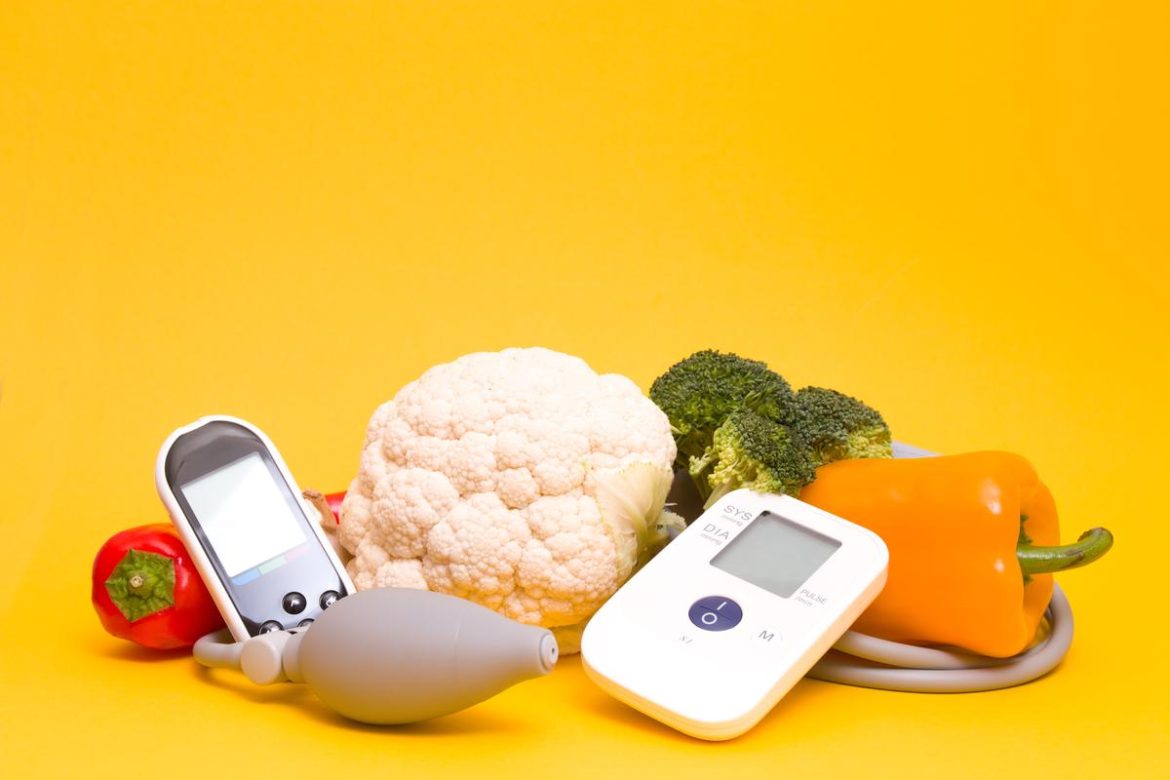Introduction: Significance of Blood Pressure Management
If we want to look after ourselves, keeping blood pressure in control pressure is important.
We can reduce the chances of developing certain diseases and enjoy various health benefits If we manage to lower blood pressure.
So, in this article, we will explore some ways to help you lower blood pressure and lead a truly normal life.
Understanding Blood Pressure

To lower blood pressure effectively, it’s important to understand what it means and how it’s measured.
Pressure refers to the force of blood against the walls of our arteries as it circulates.
We usually measure this key physiological parameter using two values: the higher value called systolic pressure and the lower value called diastolic pressure.
These measurements give us valuable information about the state of our cardiovascular health, allowing us to keep track of any potential risks or irregularities.
Pressure can be divided into different levels, such as normal, high, and various stages of hypertension. Normal pressure typically ranges from 90/60 mmHg to 120/80 mmHg, while high pressure is determined by readings between 120/80 mmHg and 129/80 mmHg.
Hypertension is further categorized into stage 1 (130/80 mmHg to 139/89 mmHg) and stage 2 (140/90 mmHg and above).
Knowing these categories helps us figure out where our own pressure falls and take the necessary steps.
The Dangers of High Blood Pressure
High blood pressure carries significant health risks and has the potential to lead to severe complications if not properly managed.
Some potential health risks associated with this condition include an increased likelihood of developing heart disease, suffering a stroke, experiencing kidney disease, and blindness.
The long-term consequences and complications of this can also lead to harm to our arteries, heart, brain, as well as other essential organs.
Therefore, it is crucial to take proactive steps that aim to reduce and effectively lower blood pressure. This ensures that blood pressure remains within the healthy range, prioritizing our overall well-being.
Implementing Lifestyle Modifications
A. Dietary Changes
Dietary choices play a pivotal role in effectively lower blood pressure.
One crucial aspect is the reduction of salt intake, as excessive consumption of sodium can significantly contribute to high blood pressure.
By incorporating a diet abundant in fruits and vegetables, we can naturally enhance our potassium and magnesium levels, which are known to be beneficial to lower blood pressure.
Furthermore, by minimizing the consumption of saturated and trans fats, we can effectively lower blood pressure and enhance our overall cardiovascular well-being.
Foods that Lower Blood Pressure

There are foods that can be especially helpful in lowering blood pressure:
Adding these foods to your diet can help to improve your health.
Leafy greens: Spinach, kale, and Swiss chard are excellent choices as they are packed with essential nutrients such as potassium and magnesium. These minerals have been shown to help lower blood pressure levels.
Berries: Blueberries and strawberries are not only delicious but also contain powerful antioxidants that promote heart health. Including these berries in your diet can contribute to maintaining healthy blood pressure.
Oats: Oatmeal is a fantastic source of soluble fiber, which has been linked to lower blood pressure. Starting your day with a bowl of oatmeal can be a simple yet effective way to support your cardiovascular health.
The Dangers of Sodium
Excessive sodium intake poses potential dangers that cannot be ignored, specifically its link to high blood pressure.
You can take the following measures to reduce your sodium intake:
Food labels: While grocery shopping, be sure to scrutinize food labels. They provide valuable insight into the nutrients contained within. To help monitor your sodium levels, seek out options that are low in sodium.
Cook at home: Cooking at home from scratch helps you have complete control over the ingredients you use and thus checks the sodium content in your food. So basically, cooking at home does help to keep a check on your sodium intake and promotes healthy eating.
Small steps towards lifestyle, as well as dietary changes, will bring a huge difference in healthy blood pressure and maintain good cardiovascular health. Baby steps are never small ones.
The Benefits of Omega-3 Fatty Acids
Eating foods containing omega-3 fatty acids, such as fatty fish like salmon and walnuts, can help lower blood pressure and improve heart health. Consider incorporating these foods into your diet plan for optimal results.
B. Physical Activity and Exercise

Regular physical activity is one of the best ways to control blood pressure naturally.
Different exercises, such as aerobic exercise, strength training exercises, and flexibility exercises, all have their own benefits for our cardiovascular system.
Cardiovascular Exercise: Activities like brisk walking, swimming, or cycling can help lower blood pressure.
Strength Training: Building muscle can improve overall cardiovascular health.
Developing a personalized exercise routine that suits our lifestyle and preferences is key to ensuring long-term adherence and reaping the maximum benefits.
C. Stress Reduction Techniques

There exists a connection between stress and blood pressure, as high stress levels can contribute to increased blood pressure.
By incorporating mindfulness and relaxation techniques into our daily routine, such as deep breathing exercises, meditation, and yoga, we can effectively reduce our stress levels and consequently lower blood pressure.
Deep Breathing: Exercises that focus on deep breathing have been shown to have a relaxing impact on the nervous system.
Meditation: Daily meditation sessions can reduce stress and promote relaxation.
Yoga: Practicing yoga regularly has been shown to lower blood pressure over time.
These techniques promote a sense of calmness and enhance overall well-being.
D. Avoidance of Harmful Habits

Smoking and excessive alcohol consumption are detrimental to our blood pressure and overall health.
Smoking leads to the narrowing of blood vessels, increasing blood pressure, and the risk of heart disease.
Similarly, excessive alcohol intake can elevate blood pressure levels.
Quitting smoking and limiting alcohol consumption are vital steps towards lowering blood pressure naturally and improving our overall health.
Natural Supplements and Herbs
A. The Role of Potassium
Potassium is an essential component of keeping blood pressure in control.
Blood pressure can be lowered by eating foods that are high in potassium.
Some great foods that are high in potassium are Bananas, oranges, spinach, and sweet potatoes.
Incorporating these potassium-rich foods into our diet can be beneficial for our overall blood pressure management.
B. Herb-based Remedies
Certain herbs have shown promise in blood pressure management.
Garlic, for instance, has been found to possess properties that help lower blood pressure levels.
Additionally, hibiscus tea has been explored as a potential natural remedy for lowering blood pressure.
Beetroot juice contains nitrates that can help dilate blood vessels.
Incorporating these herbs into our daily routine, either through cooking or as supplements, may provide additional support in our blood pressure management efforts.
C. The Power of Coenzyme Q10
Coenzyme Q10, or simply CoQ10, is a naturally occurring compound that has been associated with improved blood pressure levels.
This substance acts as an antioxidant and supports overall cardiovascular health.
CoQ10 can be obtained through natural sources like fatty fish, organ meats, and whole grains, or through supplements.
Including CoQ10 in our diet or considering supplementation may contribute to better blood pressure control.
Alternative Therapies
A. Acupuncture

Acupuncture, an ancient practice of Traditional Chinese Medicine, offers potential benefits for blood pressure management.
By stimulating specific points with thin needles, acupuncture promotes the flow of energy and helps lower blood pressure.
The frequency of acupuncture sessions may vary depending on an individual’s specific needs and response.
B. Biofeedback
Biofeedback therapy can assist in controlling blood pressure levels by providing real-time feedback about bodily functions.
It helps individuals gain awareness and control over physiological processes, such as heart rate and stress response.
Various techniques and devices, including wearable sensors, can aid in biofeedback therapy, facilitating blood pressure management.
Improving Sleep Quality

Sleep quality plays a vital role in maintaining optimal blood pressure levels.
Poor sleep or sleep disorders can contribute to elevated blood pressure.
To improve sleep hygiene and control blood pressure, it is advisable to establish a consistent sleep schedule, create a conducive sleep environment, and practice relaxation techniques before bedtime.
Adequate and restful sleep positively impacts blood pressure management.
Home Blood Pressure Monitoring

Frequent blood pressure monitoring at home is essential for effective blood pressure management.
By regularly measuring blood pressure, individuals can track their progress and make necessary adjustments to their lifestyle.
Selecting the right blood pressure monitor, such as an automated cuff, ensures accurate readings.
Understanding blood pressure readings and target levels helps in evaluating the effectiveness of natural interventions.
Seeking Professional Help
While natural interventions are beneficial, it is important to consult a healthcare professional for guidance.
They can assess our specific health situation and advise on the need for any medication to lower blood pressure effectively.
Collaborating with healthcare providers allows for the development of an individualized plan tailored to our unique needs, combining natural approaches and, if required, medication for optimal blood pressure control.
Tracking Progress and Maintaining Healthy Habits

Consistency is key when it comes to managing blood pressure naturally.
Utilizing tools and apps designed to track progress and monitor blood pressure readings can help maintain motivation and provide a clear overview of our health journey.
Celebrating milestones, both big and small, and making adjustments as needed ensures continuous improvement and sustains healthy habits in the long run.
Summary
In summary, to lower blood pressure naturally, it is essential to make lifestyle modifications, including dietary changes, regular physical activity, stress reduction techniques, and avoiding harmful habits.
Additionally, incorporating natural supplements and herbs, exploring alternative therapies, improving sleep quality, and monitoring blood pressure at home are effective strategies.
Seeking professional help when needed and maintaining consistency in tracking progress and healthy habits are vital for successfully managing blood pressure naturally.
FAQs
FAQ 1: Can high blood pressure be cured naturally?
While high blood pressure cannot be entirely “cured” naturally, it can be effectively managed using natural interventions.
By adopting a holistic approach that includes lifestyle modifications and seeking professional guidance, individuals can maintain optimal blood pressure levels and reduce the risks associated with hypertension.
FAQ 2: How long does it take to lower blood pressure naturally?
The timeline for lowering blood pressure naturally varies from person to person. It depends on factors such as the severity of hypertension, individual response to lifestyle changes, and consistency in implementing natural interventions.
Patience and dedication are key, and it is recommended to work closely with healthcare professionals to monitor progress and make necessary adjustments.
FAQ 3: Are natural remedies as effective as medication in managing blood pressure?
Natural remedies can be effective in managing blood pressure for many individuals, particularly when combined with other lifestyle modifications.
However, in some cases, medication may be necessary to achieve optimal blood pressure control.
Healthcare professionals can provide appropriate guidance and determine the most suitable treatment approach based on individual circumstances.


